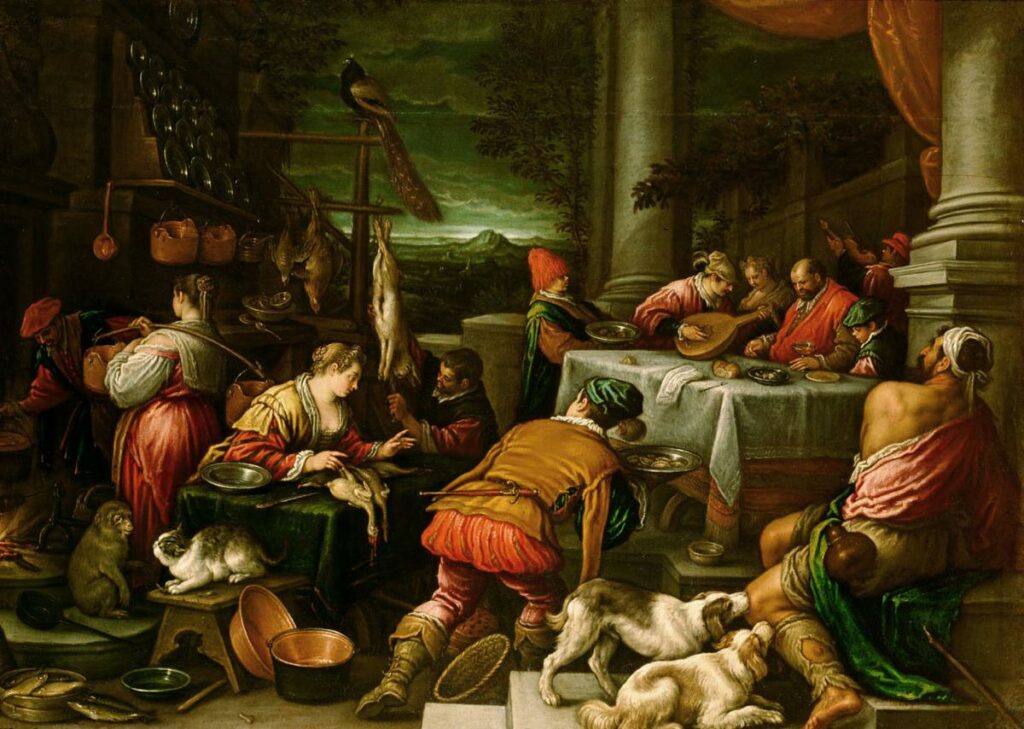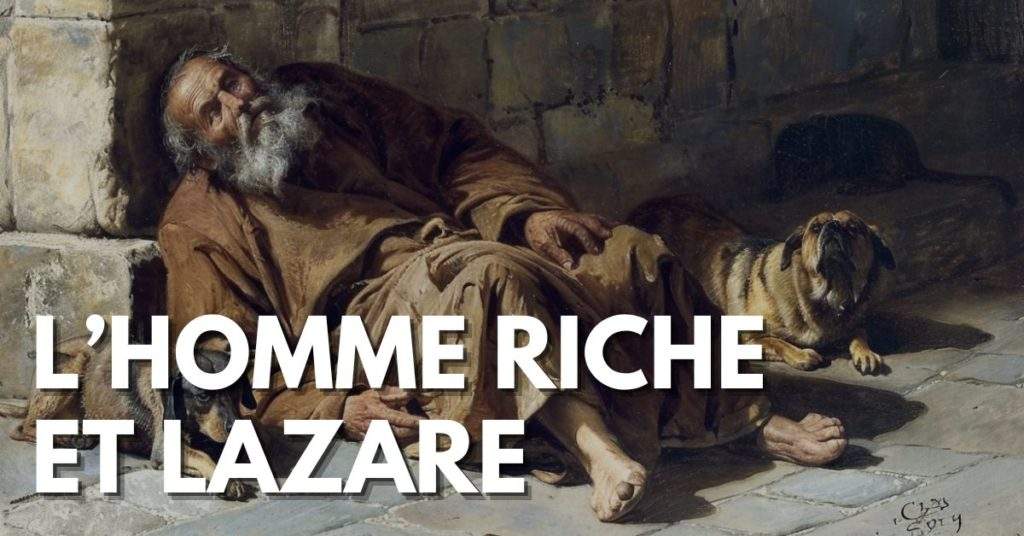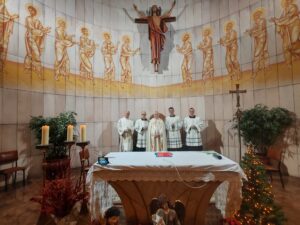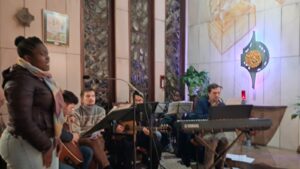
Homily
Brothers and sisters,
In the parable of the rich man and Lazarus, Jesus isn’t just talking about a destiny after death. He’s talking about a drama played out during life, and which begins with our choices, our habits, our way of seeing – or not seeing – others.
The abyss of which Jesus speaks, this unbridgeable gap between rich and poor, does not appear at death: it is dug every day by indifference, by the closing of the heart, by the refusal to listen to the prophets.
The rich man’s real problem in this parable is not his wealth. Jesus never condemned money per se. The real problem is the anaesthesia of his heart. The rich man doesn’t mistreat Lazarus. He doesn’t chase him away. He doesn’t hit him. He doesn’t even despise him directly. He does worse: he ignores him.
And this is perhaps the most dangerous sin of our time: quiet indifference.
The invisible man
Lazarus is there, right at the door. He doesn’t ask for a place at the table, just crumbs. But to the rich man, he doesn’t exist. He has no name, no voice, no value. The irony of the parable is that the poor man is the only one with a name – “Lazarus”, which means “God helps”. The rich man, on the other hand, is anonymous. It’s as if, by having everything for himself, he has lost his deepest identity.
For he who ignores others distances himself from himself. The man who cuts himself off from the suffering of others cuts himself off from his own humanity.
The spiritual abyss
Jesus shows us that the abyss that separates the rich man from Lazarus is not a punishment that fell from heaven. It’s the natural fruit of a self-centered life. A life where we only look at what suits us, where we filter the world through the comfort of our own bubbles.
And this abyss, brothers and sisters, often starts small: a simple lack of attention, a discomfort in the face of suffering, a desire to avoid what’s disturbing. But it quickly widens if nothing is done. It becomes a gulf of incomprehension, then a wall of indifference, and finally an abyss of inhumanity.
That’s why Jesus says: open your eyes now, while there’s still time. Because one day, what was a simple step to take towards the other may become an impossible step to take.
A parable about listening
At the end of the parable, Jesus insists on listening: “They have Moses and the prophets; let them listen to them!” The rich man wants a miracle, an extraordinary sign. But Jesus replies: it‘ s not the miracle that converts, it’s listening to the heart. It’s not an apparition that saves, it’s inner conversion.
We too have Moses, the prophets, the Gospel, the cries of the poor, the calls of the Pope, social alerts, ecological emergencies… What more do we need? What other voice do we want to hear in order to finally get moving?
The other face of Lazarus
In this parable, Lazarus is both a real poor man… and a spiritual figure. Lazarus is everything we refuse to see. It’s what’s wounded in ourselves and in others. It’s what humbly awaits us on our doorstep.
Lazarus is also Christ himself, rejected, covered in wounds, silent, begging for our love, our gaze, our compassion. And if we don’t recognize him in the poor man, we risk not recognizing him at all.
Conclusion: dig or fill?
Brothers and sisters, this parable presents us with a crucial question: are we digging an abyss, or are we filling the gaps? The Christian life is not an insurance policy for the hereafter. It’s a commitment to the present, to building a world that is more just, more fraternal, more attentive to the invisible.
Let’s not let the abyss grow. Let Christ awaken us, move us, convert us. For every time we cross the threshold to reach out to the suffering, we close the distance between heaven and earth.
Amen.




